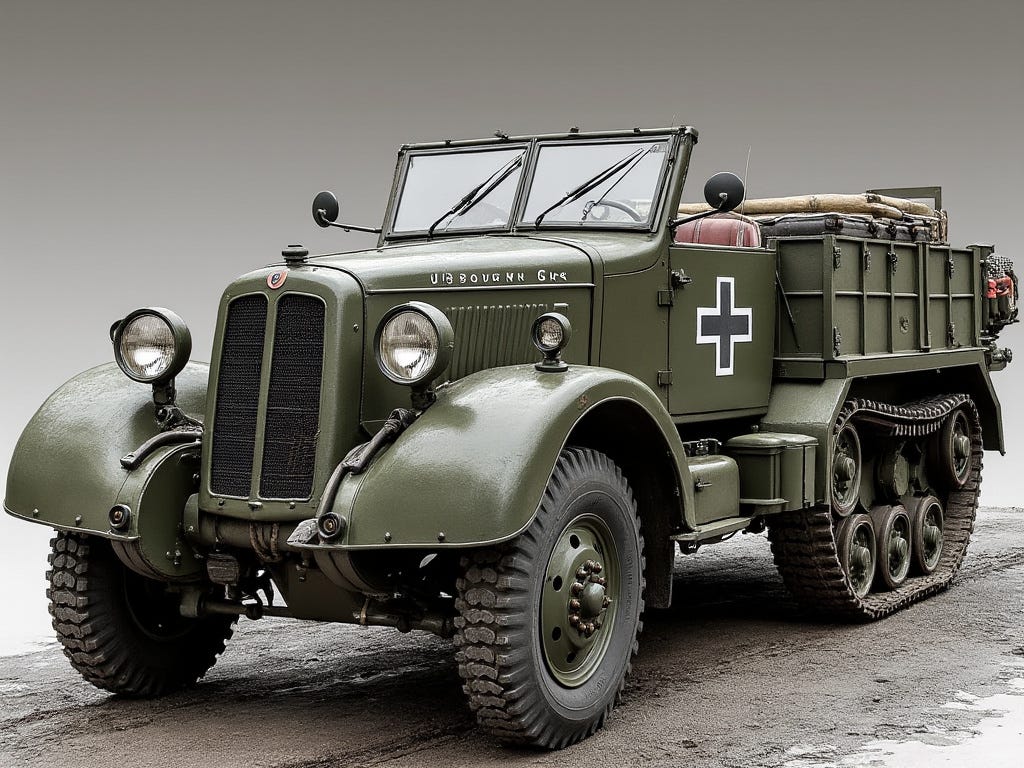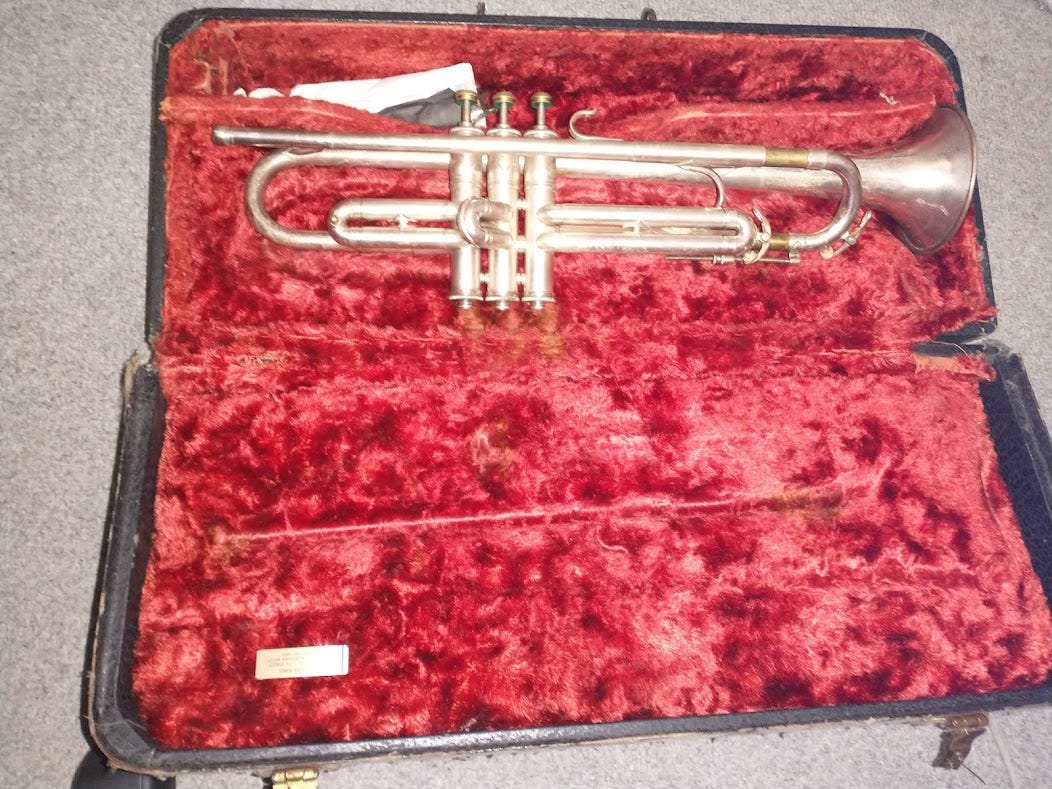My Father’s Flag
Humility in a Box
My father, James F. Sullivan, Jr, was a corporal and marksman in the Army during World War Two, a war which claimed the lives of over 250,000 US Soldiers. He was part of the 69th Infantry Division, 271 Regiment which met the Russians at the Elbe River. He never reached the river as he was injured west of Kassel, Germany. On April 9, 1945, a German soldier on a half-track vehicle fired his gun and the bullet ricocheted on a rock and hit my father in the knee, shattering it.
(image generated by Grok2 AI, close but not fully accurate)
His leg did not heal right and doctors tried to re-break his leg to fix it but failed. He would never bend his knee again. For the rest of his life, he limped. You would not notice until he walked up a flight of stairs as he did in his Dundee home.
Walking up wooden stairs for most people sounds like “plump, plump, plump, plump, plump” but my father’s effort up the stairs was distinct, “plump……, THUMP, ……. plump,…. THUMP…. plump,…. THUMP”. These sounds are installed in my earliest childhood memories. Only later would I fully understand his sacrifices for God and Country.
(My father’s trumpet. He played Reveille during training)
Upon coming home, he seldom spoke of the war. He never complained about his leg. He took his purple heart and put it in drawer.
He went on to become a doctor and practiced residence at St Louis Hospital. He helped with transient alcoholics who came into the emergency room coughing up blood. He would stuff bandages in their throat to stop the bleeding and meet with them until they healed. Many of the residents asked him, “Sully, why do you spend so much time with those damn drunks?” My father retorted, “There but for the grace of God go I.”
Later, he moved to Omaha and taught medicine and became Chief of Medicine at the Veterans Administration. He would take his medical students on rounds throughout the hospital. He took his medical students into a room to examine a patient. They exited the room and my father asked them for their diagnosis. The medical students were all in agreement, “he is drunk, an alcoholic”.
My father corrected the students, “You examined the body, but you failed to examine the patient. The man in the bed is an army veteran and leader of his platoon. The army life was the only life he knew. All of the members of his platoon were his best-beloved friends. He saw everyone one of them killed in action, dying miserable deaths. He is the sole survivor of his platoon. He does not get an award or meet the President. He does not attend veterans groups or events because the people he loved most, are dead and gone. So therefore he drinks.”
“To get him to stop drinking, you are going to have to listen as he tells you the stories of each of his beloved friends, and how they died miserable deaths, in a foreign land, never to come home.”
So now you know why my father rarely spoke of the war, never complained, or rarely ever, about his limp, and left his purple heart in a drawer. Humility. And for this reason, his burial flag provided by the U.S. Department of Veterans Affairs for his funeral, remains in this box for the same sense of humility and buried in a family plot.







My dad, like a lot of veterans, went to his grave without telling a lot of people what he went through during his service. God watch over, bless, and protect them all.
We owe our veterans so very much! Your father was an amazing man. What a legacy to leave for you to remember.